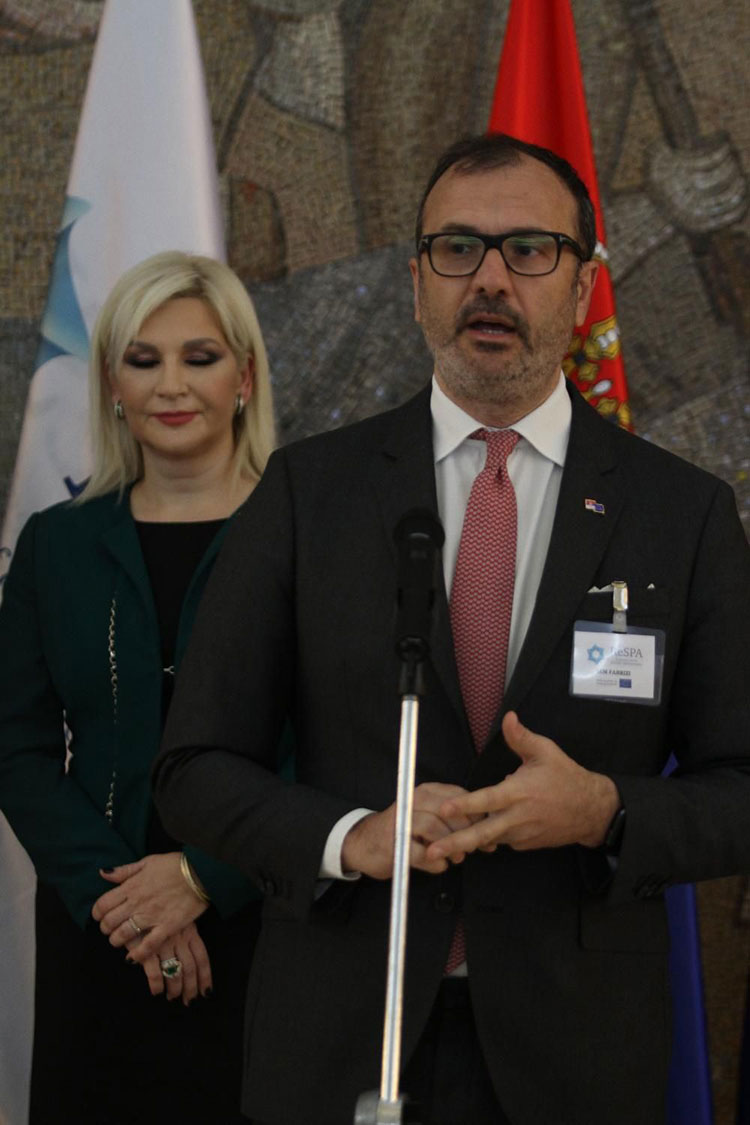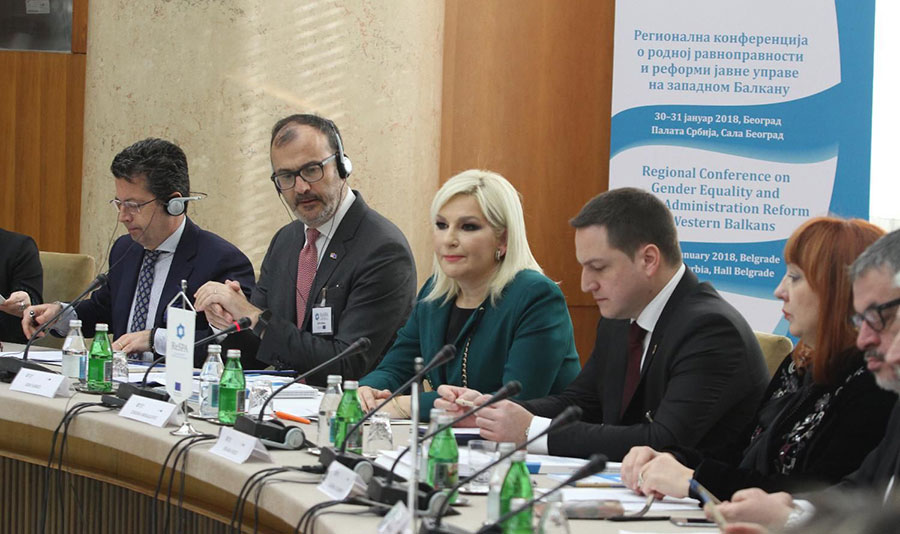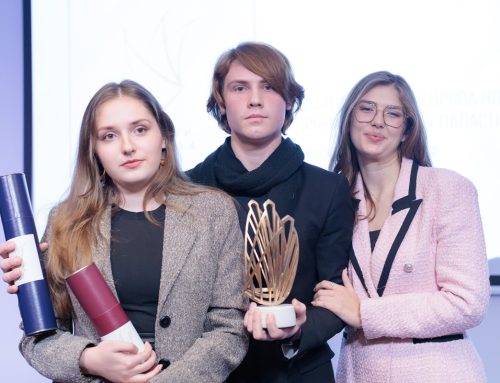Head of the EU Delegation to Serbia Sem Fabrizi said that Serbia had made a series of steps in the area of gender equality, adding that he hoped the Law on Gender Equality, that is being drafted since 2016, would be adopted soon.
Together with Deputy Prime Minister Zorana Mihajlovic and Minister of Public Administration and Local Self-Government Branko Ruzic, Ambassador Fabrizi took part in the regional conference dedicated to gender equality and rule of law reform in the Western Balkans.
Fabrizi stressed the importance of the renewed membership perspective of the Western Balkans that will be confirmed through the new Enlargement Strategy. Ambassador said that public administration reform had an important role in the European Union integration process, adding that “in the Western Balkans region, women do not yet participate equally in the public sector, especially in leadership and decision-making roles.”

FoNet
Fabrizi said that the EU Delegation in Serbia, in partnership with UN Women, had therefore launched the project “Support for Gender Equality” within IPA 2016 programme. “The aim of this intervention is to strengthen administrative capacities for gender equality and achieve significant progress in implementation of EU and national gender equality commitments through gender mainstreaming.”
Deputy Prime Minister Zorana Mihajlovic told the media that “without men, there is no gender equality, which is why we must act together.” Minister Mihajlovic said that “Serbia has made major breakthroughs in the area of gender equality; but we are far away from being satisfied. We must keep working to improve the legislative framework and implement projects that aim at women empowerment,” Mihajlovic said and added that an initiative to create a regional gender equality office has been undertaken.
Minister of Public Administration and Local Self-Government Branko Ruzic said that gender equality was among fundamental values of the Serbian society, assessing that some aspects of gender equality in Serbia are more advanced than in certain EU Member States.
“Our public administration accounts for 61 per cent of women. It shows the attention Serbia is paying to gender equality. At the Ministry I am heading, 90 per cent of employees are women,” Minister Ruzic said.
Bosnia and Herzegovina Ombudsman Jasminka Dzumhur said that raising the issue of gender equality, especially from the public administration point of view, is important.
Justice and administration are the subjects of the majority of complaints filed with Ombudsman in BiH. The situation is similar in the rest of the region. When it comes to gender-based discrimination, citizens often point to unequal treatment in application procedures, i.e. women being offered less paid jobs, said Jasminka Dzumhur.
Head of OSCE Serbia Andrea Orizio said that the Regional Conference drew increased attention to gender equality, pointing to importance of working in concert.
“Public administration plays a crucial role in achieving gender equality by setting an example and encouraging private companies to do the same,” Orizio said.
President of the Parliamentary Committee for Human and Minority Rights and Gender Equality Meho Omerovic said that as far as political representation goes, Serbia has made serious progress, not only compared to its neighbours, but also in comparison to EU Member States.
“Over 30 per cent of MPs are women; many offices are held by women. However, they remain underrepresented in local self-governments: only 12 out of 169 municipalities have women presidents,” Omerovic noted.
He said that women are still denied positions of power and control over financial resources.




